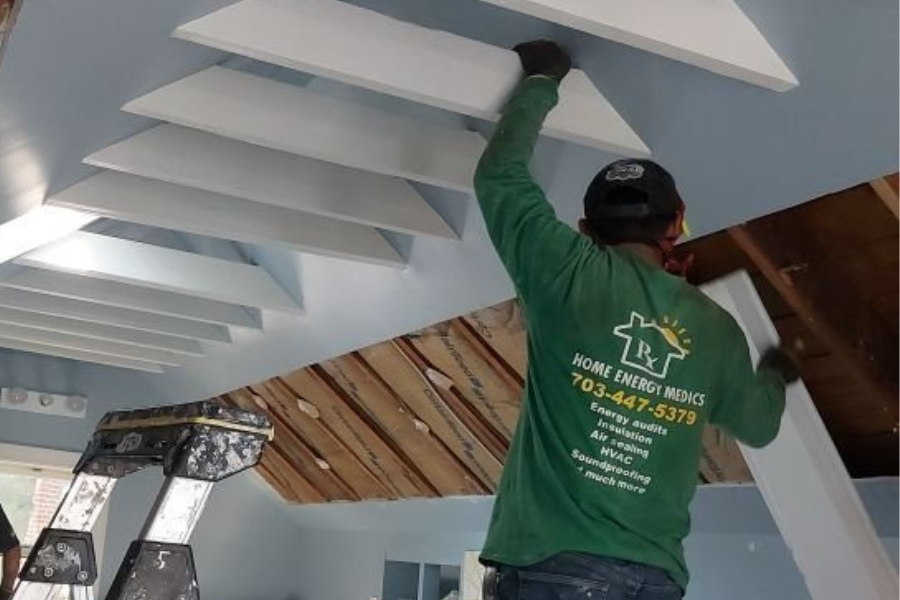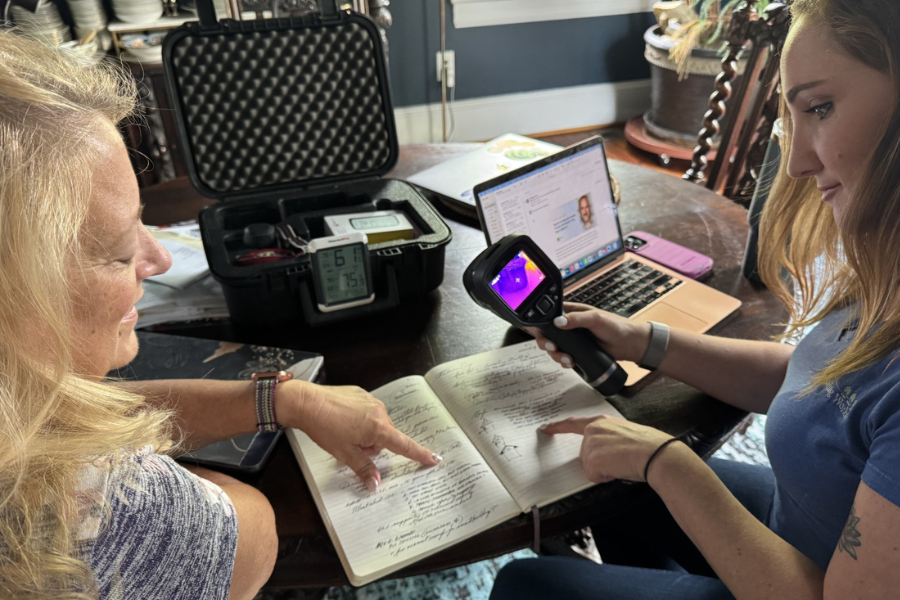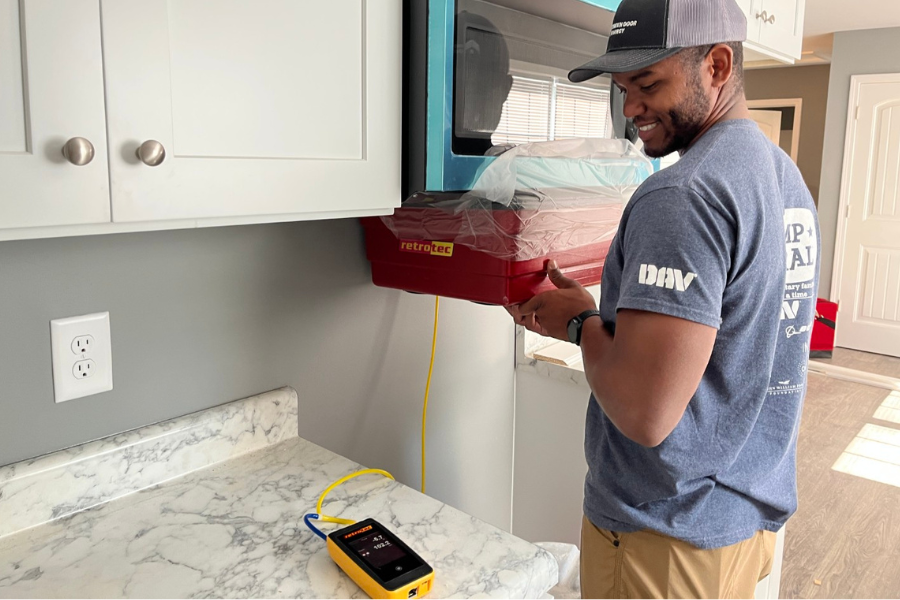Jun 23, 2025
Case Study: Best Onboarding Practices for Residential Energy Efficiency Businesses
Behind every energy-efficient home is a team of dedicated professionals—and it all starts with how they’re brought on board.
By:
Home performance businesses are at the heart of efforts to make America’s homes more comfortable, safe, and energy efficient. These companies deliver essential services—like insulation upgrades, HVAC improvements, and comprehensive energy assessments—that not only reduce energy bills and carbon emissions but also improve indoor air quality and year-round comfort for families. At the same time, they are fueling local economies by creating high-quality jobs and expanding a skilled workforce that is critical to meeting the nation’s growing demand for home energy improvements.
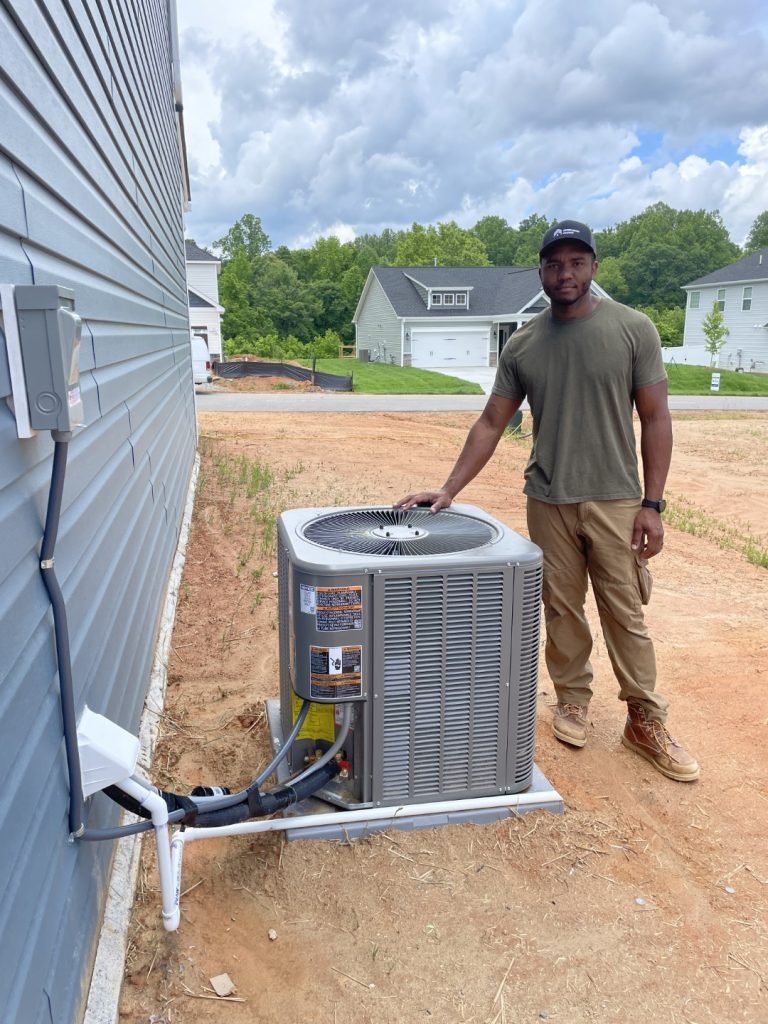
This case study, developed by the Building Performance Association (BPA), explores how effective onboarding practices can support sustainable business models. BPA engaged with businesses across several states, including Maryland, Pennsylvania, Arizona, North Carolina, California, Virginia, Massachusetts, Alabama, Colorado, and Florida, to understand the challenges and innovations of onboarding within the residential energy efficiency sector.
Four companies were selected for this case study: Koala Insulation of Denver North & Southeast Denver, Green Door Energy, HomeWorks Energy, and Walker-Miller Energy Services.
These businesses represent a diverse group among the residential energy efficiency sector—from rapidly scaling startups and established market leaders to small, owner-operated firms and mission-driven community-based organizations. Each brings a unique perspective to the onboarding process, shaped by their size, structure, workforce needs, and the communities they serve. By examining their strategies, challenges, and innovations, this case study offers a comprehensive look at how thoughtful onboarding practices can drive workforce development, improve service delivery, and support long-term business sustainability in a rapidly evolving industry.

Koala Insulation of Denver North & Southeast Denver
Founded in 2022, Koala Insulation of Denver North & Southeast Denver began as a small, family-run business with a clear mission: to deliver high-quality insulation and energy efficiency services to homeowners and businesses in the Denver area. Owned and operated by Corrie and Tanner Morley, the company quickly grew from a single crew to a team of five two-person crews, supported by an operations manager and an energy consultant/estimator.
Despite their rapid growth, Koala has remained grounded in its commitment to quality, consistency, and customer satisfaction—values that are deeply embedded in their onboarding process.
Onboarding Philosophy and Process
At Koala, onboarding is seen as a comprehensive journey that begins with the first interview and continues through the employee’s first 30 days on the job. The process is designed to ensure that every new hire—regardless of background—receives the same high-quality training and support.
The onboarding process includes:
- A two-step interview process with the operations manager and owners,
- A formal job offer followed by a two-week period of HR paperwork and initial training,
- A 30-day job shadowing period with milestone check-ins, and
- Weekly safety and operations meetings that include the entire team.
Training is guided by internal manuals and checklists and supported by tools like ADP Run for HR management and CompanyCam for job documentation and quality assurance. The BPI-certified owners also ensure that crews are equipped to meet utility rebate requirements through proper installation techniques and materials.
Challenges and Innovations
As the company expanded, one of the biggest challenges was maintaining consistency in training across multiple crews. Initially, onboarding was informal and ad hoc, but as the team grew, it became clear that a more structured approach was needed.
To address this, Koala implemented:
- Standardized checklists for both HR and technical training,
- Mobile apps to streamline documentation and communication in the field, and
- Performance incentives, including bonuses for safety, customer satisfaction, and quality of work.
These changes not only improved the onboarding experience but also helped reinforce a culture of accountability and excellence.
Outcomes and Lessons Learned
The results of Koala’s evolving onboarding process have been significant and include:
- Higher employee retention, as new hires are better prepared and more engaged,
- Improved customer satisfaction, reflected in positive Google reviews and fewer callbacks, and
- Increased efficiency and profitability, as crews work more consistently and independently.
Perhaps most importantly, the onboarding process has become a tool for cultural alignment. Employees who are not a good fit tend to self-select out early, while those who thrive contribute to a stronger, more cohesive team.
Key Takeaways
- Start with a simple, documented process and refine it as the business grows.
- Use employee feedback and customer outcomes to guide improvements.
- Don’t be afraid to borrow best practices from peers and adapt them to your own context.
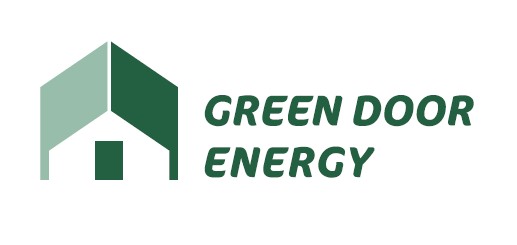
Green Door Energy
Green Door Energy, founded by Aaron Martin in January 2019, is a small, owner-operated business specializing in RESNET-related services. Despite its size, Green Door Energy has developed a comprehensive onboarding process that leverages technology, mentorship, and evolving systems to ensure new hires are well-prepared and integrated into the company.
Onboarding Philosophy and Process
At Green Door Energy, onboarding is viewed as a foundational step in setting employees up for long-term success. Led personally by owner Aaron Martin, the process is designed to be thorough, supportive, and systems-driven. New team members are introduced to the company through a structured onboarding experience that emphasizes clarity, consistency, and empowerment. This includes:
- A guided orientation using a comprehensive company policy manual,
- Setup of payroll and time-tracking through an integrated mobile platform,
- Clear documentation of paid time off policies and formal time-off request procedures,
- Issuance of company devices enrolled in mobile device management for security and efficiency, and
- Step-by-step instructions for use of company vehicles and other operational tools.
This hands-on approach reflects Green Door Energy’s commitment to professionalism, accountability, and a supportive work environment from day one.
Challenges and Innovations
One of the biggest challenges faced by Green Door Energy is the lack of formal systems, which Martin is actively working to establish and refine. Leveraging technology built into services like Indeed and having a trusted advisor to use as a sounding board are some of the steps taken to create a smoother hiring and onboarding process.
Outcomes and Lessons Learned
The onboarding process at Green Door Energy has led to higher employee engagement and retention. The success story of hiring a former client who became a valuable asset to the company highlights the importance of exploring “outside the box” candidates.
Key Takeaways
- Leveraging technology and templates can save time and improve the onboarding process.
- Consistency and systems are crucial for effective onboarding.
- Having a trusted advisor and mentorship can enhance the onboarding experience.
- Exploring unconventional candidates can lead to successful hires.
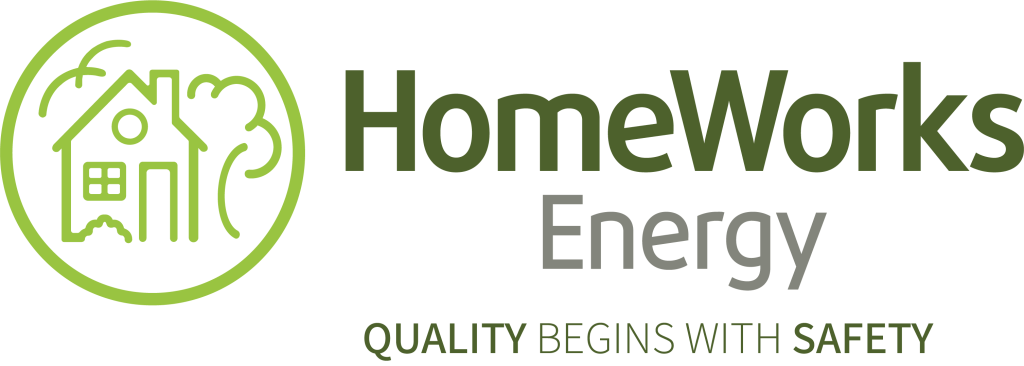
HomeWorks Energy
HomeWorks Energy, founded in 2008 in a garage by Scott Veggeberg, began as a small, mission-driven company focused on simplifying energy efficiency for homeowners. In 2013, Scott’s son, Max Veggeberg and his business partner Martijn Fleuren, took over leadership and helped scale the business significantly. What started as a modest operation has since grown into the largest residential insulation and HVAC company in the United States, employing over 600 people and serving customers across Massachusetts, Connecticut, and Rhode Island.
Onboarding Philosophy and Process
HomeWorks Energy attributes much of its growth and success to its investment in structured, role-specific onboarding. The company views onboarding not just as a formality, but as a foundational element of its business model—one that ensures employees are aligned with company values, equipped with the right skills, and prepared to deliver high-quality service from day one.
Depending on the role, onboarding can range from a two-day classroom experience to a five-week training program with field mentorship and ongoing support. For example:
- Home Energy Specialists undergo a five-week training program that includes classroom instruction, field shadowing, knowledge assessments, and post-launch support.
- Field Installers receive safety training tailored to their roles, including hands-on roof safety simulations conducted on a mock house at the company’s facility.
- Marketing and Customer Operations staff follow structured onboarding tracks that blend classroom learning with shadowing and mentoring.
The company uses a combination of tools to support this process, including:
- Learn365 for online learning management,
- Office 365 and ClearCompany for documentation and checklists, and
- Standard Operating Procedures (SOPs) for departments with frequent onboarding needs.
Challenges and Innovations
As HomeWorks scaled, it faced the dual challenge of maintaining training quality while managing costs. The company responded by reorganizing its onboarding programs to focus on what was most impactful and cost-effective. For instance:
- The weatherization training was redesigned to eliminate unnecessary sessions and stage training more effectively over time.
- The brand ambassador program was restructured to allow for more frequent onboarding sessions, enabling faster team expansion without sacrificing training quality.
They also addressed logistical challenges, such as transportation barriers, by setting clear expectations during hiring and offering stipends or mileage reimbursement when needed.
Outcomes and Lessons Learned
HomeWorks Energy’s commitment to onboarding has paid off in multiple ways, including scalability, retention and performance, and continuous improvement.
- Scalability: Their structured approach allowed them to grow from a garage-based startup to a national leader in residential energy efficiency.
- Retention and Performance: Employees are better prepared, more engaged, and more likely to succeed in their roles.
- Continuous Improvement: The company embraces a culture of learning and iteration, guided by their internal motto: “Always Gettin’ Bettah.”
Key Takeaways
- Thoughtful onboarding is a strategic investment that supports long-term growth.
- Role-specific training and clear documentation are essential for consistency and quality.
- Flexibility and feedback-driven improvements help keep onboarding relevant and effective.
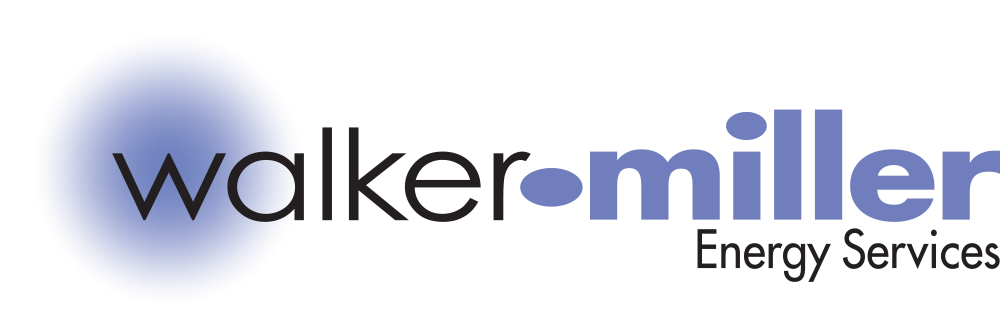
Walker-Miller Energy Services
Walker-Miller Energy Services, founded in 2000, is a Detroit-based, Black- and woman-owned energy efficiency company. The company employs more than 200 team members across multiple states and specializes in empowering people and enriching communities through energy efficiency and clean energy solutions.
Onboarding Philosophy and Process
Walker-Miller Energy Services has developed a structured onboarding process for their Diverse Contractor Incubator Program, which prepares new or early-stage minority- and women-owned contractors to successfully participate in the clean energy economy. The process includes assessment of baseline business capacity, enrollment into foundational trainings, guidance on utility program participation, mentorship and peer learning opportunities, and access to tools, equipment, and wraparound support.
Challenges and Innovations
The onboarding process at Walker-Miller Energy Services addresses challenges such as varying levels of contractor readiness, navigating utility compliance requirements, balancing technical training with business development, bridging resource gaps, and sustained engagement post-onboarding. The company has implemented baseline assessments, compliance toolkits, co-facilitated sessions, partnerships for resource support, and a post-program mentorship model to overcome these challenges.
Outcomes and Lessons Learned
The Diverse Contractor Incubator Program has led to high contractor retention, performance, customer satisfaction, and economic mobility. Contractors who graduate from the program consistently meet or exceed utility program expectations and have contributed to high satisfaction scores on post-service surveys.
Key Takeaways
- Technical skills alone are not enough; business development support is equally important.
- Onboarding must be individualized to meet contractors where they are.
- Sustained, trust-based relationships drive outcomes.
- Access to resources matters more than information.
- Post-program support is key to long-term success.
- Equity must be intentional in designing onboarding programs.
Conclusion
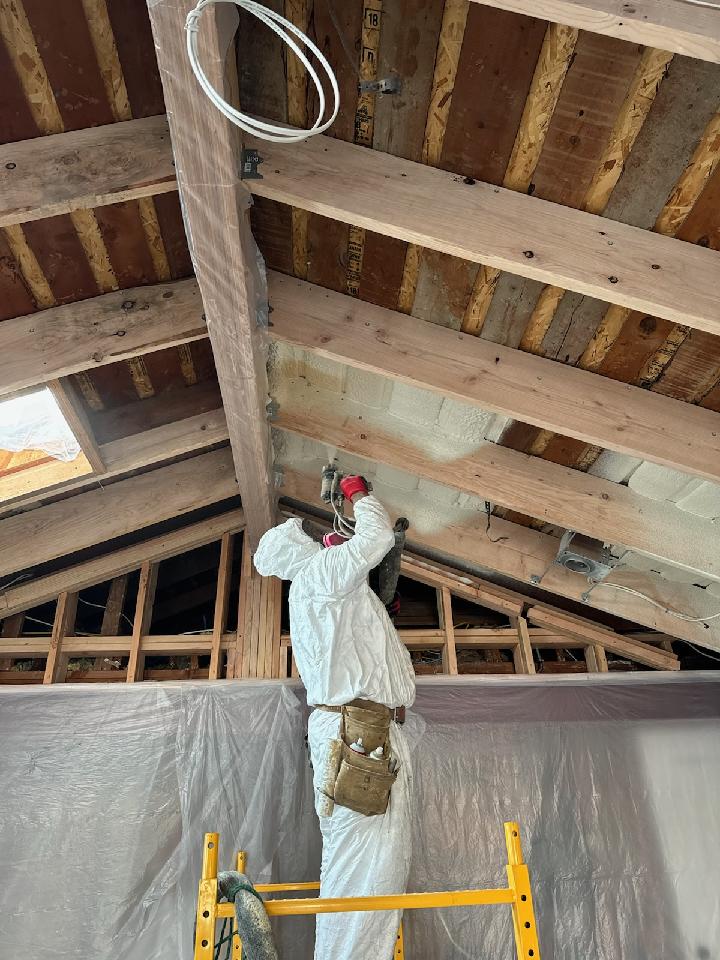
The experiences of Koala Insulation, Green Door Energy, HomeWorks Energy, and Walker-Miller Energy Services illustrate that effective onboarding is not just a human resources function—it’s a strategic investment in a company’s future.
For Koala Insulation, a young and growing company, onboarding has been a tool for building consistency, culture, and operational excellence from the ground up. Their willingness to adapt, document, and incentivize has helped them scale quickly while maintaining high standards.
For Green Door Energy, a small, owner-operated business, onboarding is a deeply personal and evolving process. By leveraging technology, informal mentorship, and a commitment to continuous improvement, the company has created a thoughtful and adaptable onboarding experience that supports employee engagement and long-term growth—even with limited resources.
For HomeWorks Energy, onboarding has been a cornerstone of their evolution from a garage-based startup to a national leader in residential energy efficiency. Their structured, role-specific approach has enabled them to train hundreds of employees effectively, reduce turnover, and maintain a high level of service across multiple states.
For Walker-Miller Energy Services, onboarding is a vehicle for equity and empowerment. The Diverse Contractor Incubator Program effectively equips contractors with the tools necessary to thrive. Their approach demonstrates how onboarding can be a catalyst for community impact and economic mobility.
Across these four companies, several common themes emerge:
- Documentation and Standardization: Clear processes and checklists ensure consistency and quality.
- Role-Specific Training: Tailored onboarding experiences help employees and contractors succeed in their specific roles.
- Feedback and Iteration: Continuous improvement, guided by input and performance data, keeps onboarding relevant and effective.
- Cultural Alignment: Onboarding is an opportunity to instill company values and expectations from day one.
- Equity and Access: Thoughtful onboarding can remove barriers and create opportunities for underrepresented groups.
As the residential energy efficiency industry continues to grow, these insights offer a roadmap for businesses of all sizes and structures. By investing in thoughtful, adaptable onboarding practices, companies can build stronger teams, deliver better service, and contribute more meaningfully to a viable and inclusive future.
This is the second in a series of case studies on best practices for residential energy efficiency businesses. Read the first one here: Case Study: Best Practices for Residential Energy Efficiency Businesses in Project Identification.


